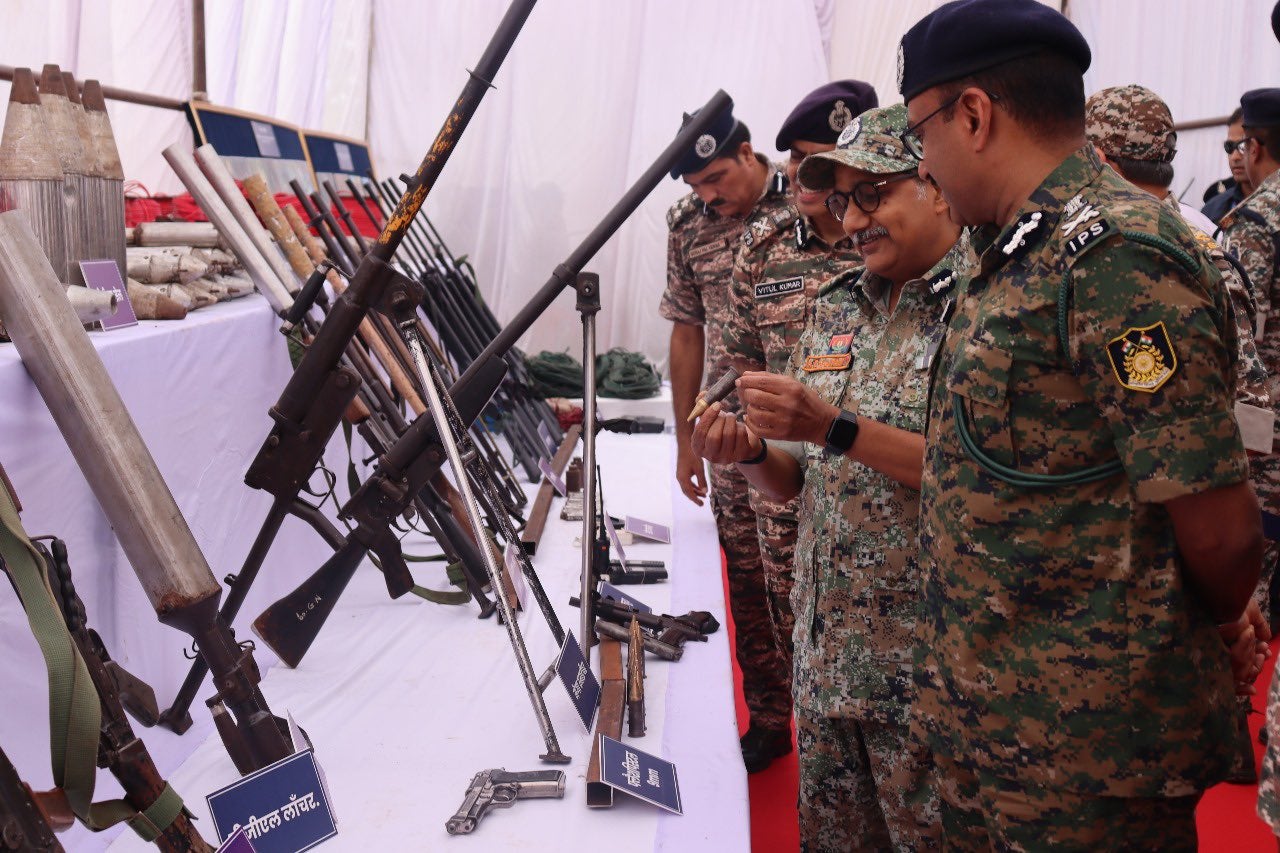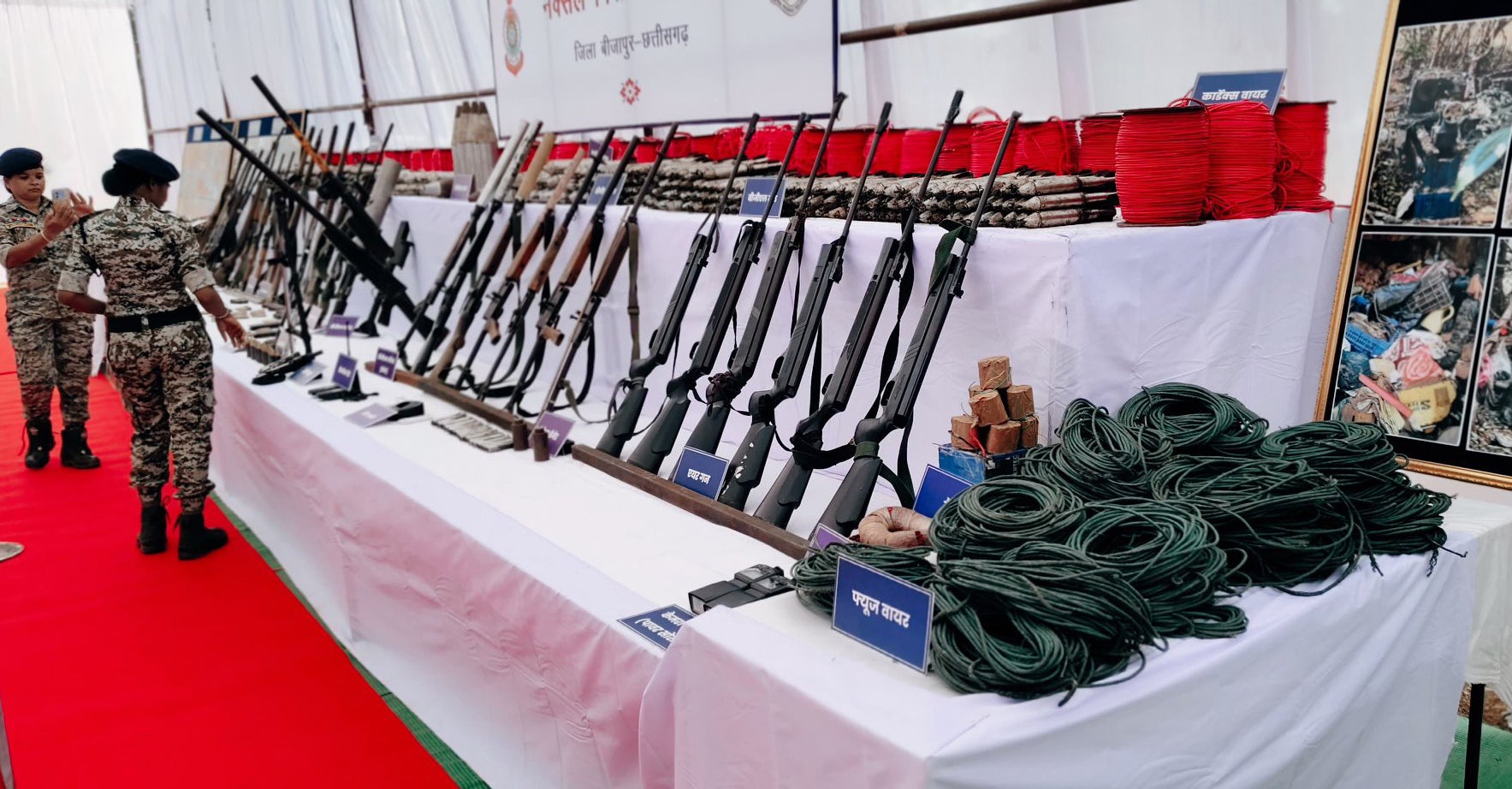ARTICLE AD BOX
Indian security forces claimed to have killed at least 31 suspected Maoist guerrillas in what they described as the “biggest ever operation” against rebel groups in the country’s forested heartland.
Federal home minister Amit Shah said the 21-day operation was a “historic breakthrough” in the fight against the Maoist insurgency.
Maoist guerrillas, also known as “Naxalites”, have been waging a rebellion against the Indian government for four decades, mainly in the central states of Chhattisgarh and Telangana. They claim to defend the rights of Indigenous tribes that live in central India and seek to overthrow the "semi-colonial, semi-feudal" government. They also demand land and jobs for the poor.
Security forces said Operation Black Forest was carried out between 21 April and 11 May around the Karregutta hills and involved 26,000 personnel from the Chhattisgarh police and the Central Reserve Police Force. The aim was to capture the strategic hills on the border between Chhattisgarh and Telangana from the Maoists.
.png)
“Our security forces completed the biggest anti-Naxal operation in just 21 days and I’m extremely happy that there was not a single casualty in the security forces in this operation,” Mr Shah posted on X.
His ministry said “a total of 214 Naxal hideouts and bunkers” had been destroyed and caches of explosives recovered during the operation.
The prime minister also hailed the operation. “This success of the security forces shows that our campaign towards rooting out Naxalism is moving in the right direction. We are fully committed to establishing peace in the Naxal-affected areas and connecting them with the mainstream of development,” Narendra Modi said.

At a press briefing in Bijapur, Chhattisgarh, security forces displayed pictures of caves and bunkers supposedly used as hideouts by the Maoists. They also displayed rifles, shells and explosive devices that were allegedly recovered from the rebels during the operation.
Central Reserve Police Force chief GP Singh told reporters they had recovered at least 35 weapons, 800 BGL shells, over 450 IEDs and huge caches of explosives from the area.
.png)
“We had at least 21 exchanges of fire. During the operation, we recovered 31 dead bodies of Naxals. An unknown number were killed but not recovered due to geographically difficult terrain,” Mr Singh said.
At least 18 security personnel were injured during the operation, mostly from exploding IEDs, but there were no fatalities.

The Maoists, inspired by Chinese revolutionary Mao Zedong, have been fighting Indian forces for decades. They run parallel administrations in the remote forested regions of central India that are inhabited largely by Indigenous tribals.
The Indian government has launched a series of crackdowns on the Naxalites in recent years, drawing accusations of human rights violations and calls for dialogue. It has previously described the Maoists as the country’s most serious internal security threat.
.png)
In April 2024, security forces killed at least 29 suspected Maoist rebels in Chhattisgarh in one of the deadliest operations against the rebels in recent years.
A year earlier, suspected Maoists had bombed a security forces vehicle in the same state, killing at least 10 personnel and their driver.









 English (US) ·
English (US) ·